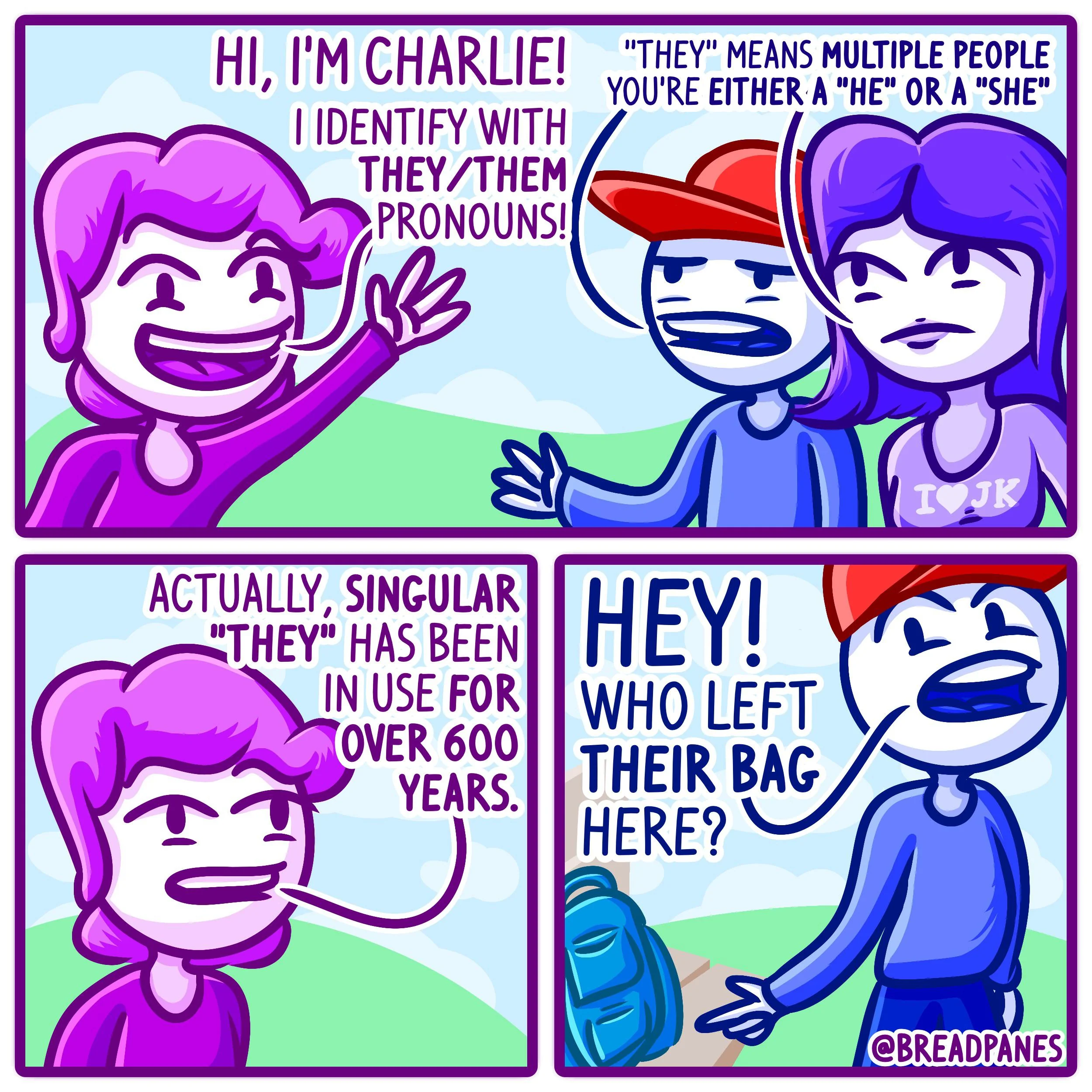this post was submitted on 12 Dec 2024
495 points (80.7% liked)
Comic Strips
13497 readers
2529 users here now
Comic Strips is a community for those who love comic stories.
The rules are simple:
- The post can be a single image, an image gallery, or a link to a specific comic hosted on another site (the author's website, for instance).
- The comic must be a complete story.
- If it is an external link, it must be to a specific story, not to the root of the site.
- You may post comics from others or your own.
- If you are posting a comic of your own, a maximum of one per week is allowed (I know, your comics are great, but this rule helps avoid spam).
- The comic can be in any language, but if it's not in English, OP must include an English translation in the post's 'body' field (note: you don't need to select a specific language when posting a comic).
- Politeness.
- Adult content is not allowed. This community aims to be fun for people of all ages.
Web of links
- [email protected]: "I use Arch btw"
- [email protected]: memes (you don't say!)
founded 2 years ago
MODERATORS
you are viewing a single comment's thread
view the rest of the comments
view the rest of the comments

Don't use it then.
The only time you would ever need to use someone's pronouns is when they're not part of the conversation anyway.
I couldn't care less what people refer to me as if I'm not there.
"I was with Dan the other day. They forgot their keys at home. They said they had to go back to get them."
Literally not hard at all?
"I was with Dan (they/them) and Steve the other day. They hadn't brought a poster they needed and went back to the car to get it."
This demonstrates the semantic problem with using "they" as a pronoun: it isn't clear who went back to the car, (1) just Dan or (2) both Dan and Steve. Nor is it clear who needed the poster and who hadn't brought it.
If you're with Dan (they/them) and Dan (he/him), you would also have the problem when saying
"I was with Dan and Dan the other day. Dan hadn't brought the poster, so Dan went back to the car to get it."
So to avoud confusion, people should not be allowed to be called Dan anymore. In fact everyone gets a UUID so there is no more confusion.
You would have a problem but it would not be the same problem as in my example. The problem here is not because of the choice of pronoun.
Well it kinda is. Pronouns are like names, in the sense that we use them to describe to whom we refer.
They are a non injective function on the name set.
The restriction you would like to make is that the function is not multivalued. But it is. As an example, Andrea is a name that is usually associated with a female person, but it is a normal name for male people in Italy.
We allowed people to be named whatever they wanted (or their parents wanted), so why not also let them choose whatever pronoun they prefer?
I disagree.
Pronouns are not names.
That's the second time you've used the word "allow". That's very telling.
I disagree.
Yes, that is why I wrote "like". They serve the same functionality.
That is the first time you wrote second. That's very telling.